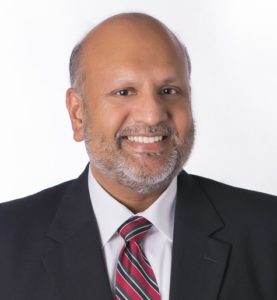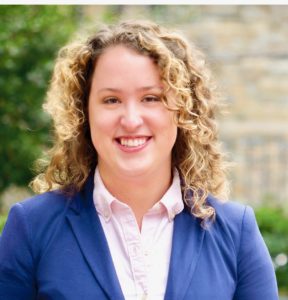Florida faces a clear and present danger from the climate crisis.
Unfortunately, despite widespread calls in Florida’s media prior to the June Democratic presidential debates, only 15 minutes out of a total of 4 hours was spent on climate change.
Now, DNC Chairman Tom Perez has been forced to consider a special debate on climate change, with a vote happening on Aug. 23. There must be assurances that the debate will focus on specific plans based on scientific evidence. Indeed, we are seeing the effects of worsening climate change all over the world this summer.
For Floridians, this is not a theoretical or political issue.

While hurricanes are common here, climate change increases heat energy, which make them far more powerful. Two years ago, Hurricane Irma hit South Florida, causing significant damage across the state. Last year, the Panhandle was devastated by Michael, a Category 5 hurricane that caused extraordinary destruction.
Miami, like other coastal cities, is experiencing record-breaking numbers of high-tide flood events, according to the May 2018 National Climate Report. Saltwater intrusion is contaminating the Biscayne Aquifer. This will worsen as seas rise. Sea-level rise threatens South Florida’s drinking water supply.
The climate crisis is costing us a lot of money and will cost us more in the future. According to a Bloomberg analysis, the insurance industry may stop providing coverage in Florida due to the potential for more catastrophic property losses from climate-related extreme weather. This may significantly reduce home values.

The cost of health care is rising because of the crisis. Heat waves are becoming longer and hotter. Summer heat waves can be life-threatening for vulnerable populations, especially the homeless, poor, children, and elderly.
As one of Florida’s 83,000 physicians, I see the effects of climate change on patients’ physical and mental health. Hospital admissions for congestive heart failure, kidney disease, and asthma/COPD attacks increase on hotter days.
Warmer temperatures lead to longer mosquito seasons, increasing the spread of diseases such as West Nile, Chikungunya, and Zika, which infected nearly 4,000 people in Florida from 2004-2016, according to the Centers for Disease Control and Prevention. Furthermore, pollution, fire, heat, and insect-spread diseases don’t respect boundaries of rich and poor or white, black, and brown.
Instead of decreasing greenhouse gas emissions, fossil fuel interests are pushing for more pipelines, fossil-fuel power plants, and liquified natural gas projects, including bringing gas to converted oil plants, according to a recent Standard & Poor’s report. Florida brought three LNG facilities online since 2017 with more on the way.
These projects will worsen carbon pollution while diverting resources from transitioning to clean energy. The carbon pollution will detract from efforts to stabilize the climate.
To avert even more harm, we need to stop new fossil-fuel projects and rapidly reduce our use of fossil fuels to keep the planet from warming more than 1.5 degrees Celsius or 2.7 degrees Fahrenheit. This is not an arbitrary number. It is a global benchmark based on decades of scientific research.
Despite the Trump administration’s promotion of energy sources that add carbon pollution while stifling renewable energy development, decades of Republican and Democratic support for dirty energy are also to blame. Our next president must commit to a rapid phaseout of fossil-fuel infrastructure and a just and equitable transition to 100 percent clean, renewable energy by 2035.
Floridians are concerned about the effects of climate change and are committed to solutions. Florida created more solar jobs in 2018 than any other state. The economic opportunity is genuine.
As they campaign throughout the country, all presidential candidates need to articulate a vision to address climate change and show leadership in addressing the root causes.
The nation will weigh the gravity each candidate gives to the climate crisis by their plans. Future generations will also judge us and the next President on the choices we make this election cycle. Our economy, health, security, and prosperity depend on it.
Dr. Ankush K. Bansal is a physician in Palm Beach Gardens. He is with Florida Clinicians for Climate Action & Physicians for Social Responsibility, Florida. Michelle Allen is with Food & Water Action
“The Invading Sea” is a collaboration of four South Florida media organizations — the South Florida Sun Sentinel, Miami Herald, Palm Beach Post and WLRN Public Media.



